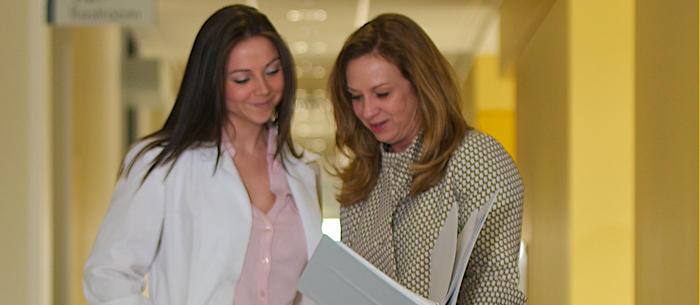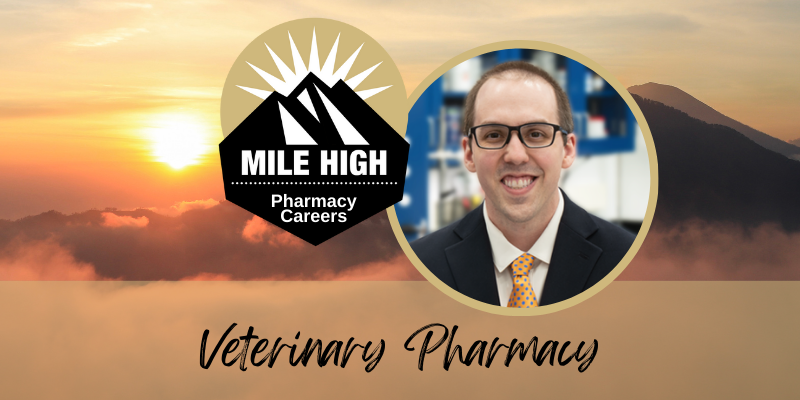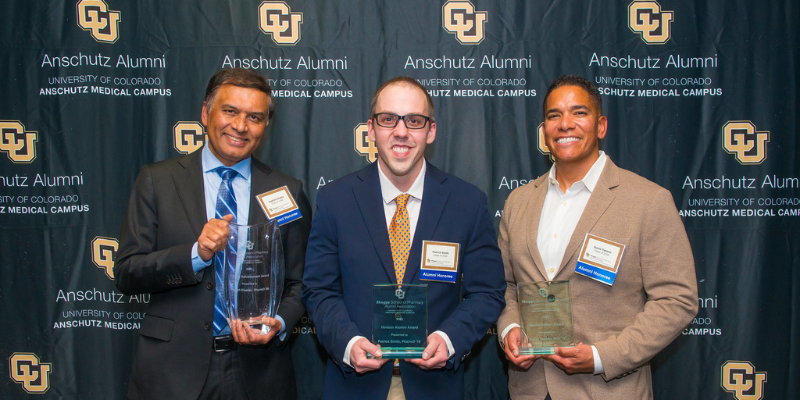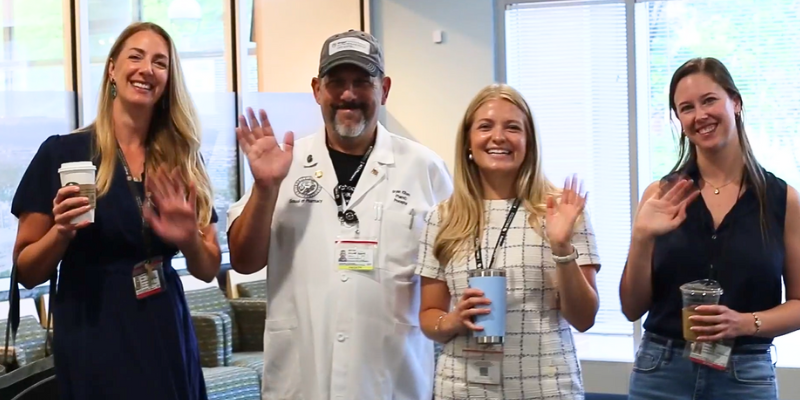Graduates of the University of Colorado Skaggs School of Pharmacy and Pharmaceutical Sciences are capturing some of the most sought after residencies in the nation. The American Society of Health-System Pharmacists reported that in 2015 4,358 candidates competed for only 3,006 PGY1 (Post-Graduate Year 1) positions. Despite there being more candidates than residencies, our students are finding themselves competitive, with students placing in top programs at University of California Davis, Johns Hopkins, Stanford University, University of Illinois at Chicago, University of Chicago, and Mayo Clinic Health System.
Faculty and staff prepare students for residency programs through a rigorous pharmacy education program, and by offering workshops, an annual residency showcase and other assistance—ensuring that Skaggs graduates are able to match to some of the most selective programs across the nation.
“Post graduate residencies are extremely beneficial to our graduates as they provide advanced pharmacy training —positioning our graduates to launch careers of their choice," said Ralph J. Altiere, dean of the Skaggs School of Pharmacy. "Residencies expose them to potential employers, help them develop management and leadership skills, and build on what they learned in our program. We are very proud of our students, the PharmD program and the education our students received. We know our program is among the best in the nation as witnessed by how our graduates are sought after by world-renowned institutions. Our graduates prove time again that they are well prepared to take on the top residency programs in the country.”
This year was no exception. Approximately 63 percent of applicants from Skaggs successfully obtained a PGY-1 residency position, with candidates from the school receiving two of eight spots in the program at Johns Hopkins as well as other choice institutions.
To say residency programs are challenging is an understatement. Long hours, aggressive learning and high expectations come hand-in-hand with these programs. But for the students fortunate enough to be matched with a program, the training and academic benefits far outweigh the hardships.
Laura Vriesman
Residency program: Johns Hopkins PGY1
Backstory: Laura Vriesman has wanted to become a pharmacist since seventh grade when her brother was diagnosed with a brain tumor. She went to his appointments, watched his care and saw how drugs could work on the body. After that, there was nothing else she would rather be.
Why go for a residency? “I knew I would learn so much and I wanted experience from people who have been in the field for years—things I couldn’t learn from books, but rather from clinical practices.”
Preparing for residency: “We start talking about residencies early and understand that if we want to do this, our program will give us all of the resources available to make us as successful as we want to be.”
The next step: Vriesman plans to become a pharmacist specializing in emergency medicine and is looking at second-year programs focusing on critical care pharmacy.
Regina Yun
Residency program: Johns Hopkins PGY1
Backstory: Yun decided to become a pharmacist after working for CVS. She got to know the staff and the pharmacist, and decided it could be a career that interested her. She originally planned to become a community pharmacist, but after experiencing rotations she found that her passion was to become an ICU pharmacist.
Why go for a residency? “To become a competent ICU pharmacist, I realized that completing a residency program is a first step I would have to take.”
Preparing for residency: “The education I received at Skaggs was excellent,” Yun said. “I’m learning a lot here and think that my education is enhanced because of my time at Skaggs. The faculty and relationship built at the University of Colorado are what makes the school stand out above others. Very few schools have mentors willing to travel to Ecuador with you or to sit with you for hours to advise you on your career choices. The support I received still resonates with me.”
The next step: Yun has accepted a place in the PGY2 program at Johns Hopkins, where she will be focusing on critical care.
Sarah Byrnes
Residency program: Mayo Clinic Health System PGY1
Backstory: After graduating, Byrnes took a job as a homecare pharmacist at the Mayo Clinic Health System in Lacrosse, Wis. When the health system decided to launch a new residency program, her coworkers encouraged her to apply. Even though she was already working in the field, she knew she could benefit from the additional experience and mentoring.
Why go for a residency? “Even though I had the four years of pharmacy school, there were still some areas where I wasn’t super confident. I knew doing a residency would get me to the level I wanted to be. After working with people who have done residencies it was apparent that a residency gives you that extra stepping stone between school and working.”
Preparing for residency: “Skaggs was very focused on inpatient hospital pharmacy, and that was a positive. They promoted residency and the importance of it. Having people teach you who are experts in your field makes you feel more confident in the knowledge base you have gained.”
The next step: Byrnes is exploring specialties and may continue to a second-year program. She noted that the time working between her time at Skaggs and the PGY1 program was so beneficial that she might work before beginning a PGY2.
Kaitlyn Moorehead
Residency program: University of California Davis PGY1
Backstory: Moorehead volunteered at a hospital in high school and rotated through several departments. She particularly liked working in the pharmacy and thought it was an interesting career path. For her, being a pharmacist allows her to use medical knowledge and care for patients without typical hands-on aspects.
Why go for a residency? “I knew the additional training from a residency would help me achieve my goal of becoming a critical care pharmacist. In order to do that at an academic teaching institution, they require a PGY2 residency. So I needed aPGY1, which is helpful even if you don’t want to be a specialist.”
Preparing for residency: “My fourth-year rotations prepared me really well. I also did an honors project with Scott Mueller at the University of Colorado, and that was tremendously helpful in getting my research project started because an honors project is similar to a resident research project. I knew how to get my IRB started, what to think about when calculating my sample size and how to write a protocol—all of that has been tremendously helpful.”
The next step: Moorehead is deciding between a PGY2 program in critical care or beginning work in general/internal medicine
At CU Skaggs School of Pharmacy our students, graduates and faculty show every day why our School is the BEST.



